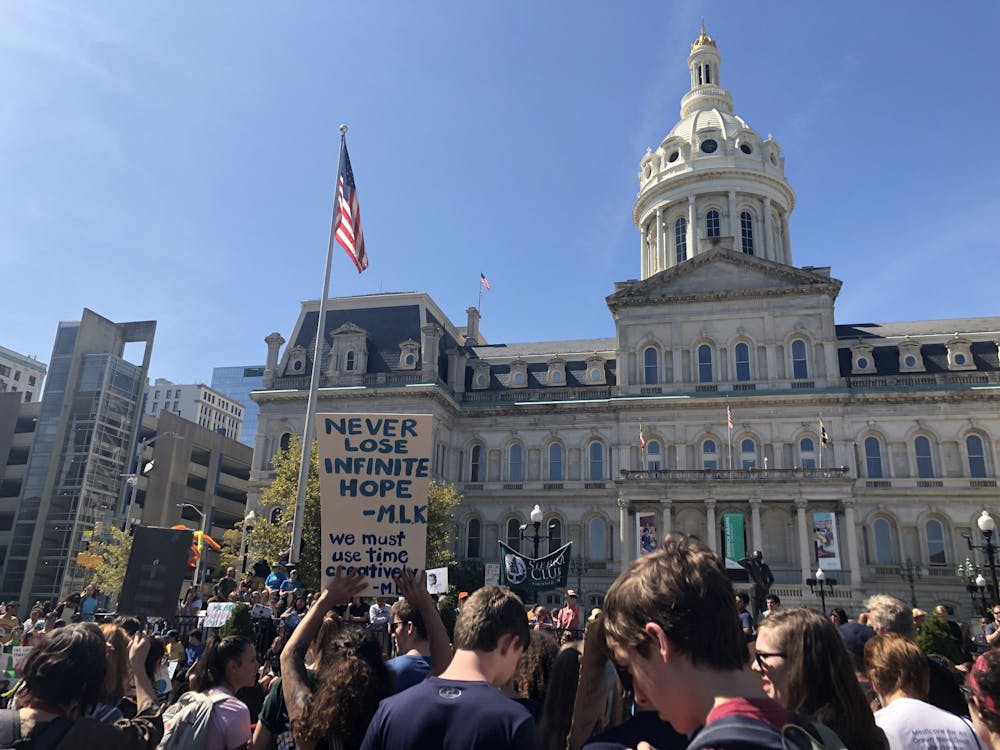
On Sept. 23, activist Greta Thunberg spoke at the United Nations (UN) Climate Action Summit. Criticizing the adults who hesitate to make change, she did not hold back when speaking about climate change.
“People are suffering. People are dying. Entire ecosystems are collapsing,” Thunberg said.
It is very important to discuss the role of the government versus the role of an individual in combatting climate change.
Some skeptics of climate change, including U.S. President Donald Trump, do not believe that current conditions of the planet are directly related to human activity. However, data that the National Aeronautics and Space Administration collected makes it clear that carbon dioxide levels are at an all time high, despite fluctuations throughout the years.
Higher carbon dioxide levels indicate greater emissions and greater pollution. Other evidence of climate change includes the shrinking ice sheets and glacial retreat, rising sea levels, and extreme weather events.
Governments all over the world have started to take action towards minimizing the negative effects of humans. Representatives from 197 countries signed the Paris Agreement, a pledge created by the UN Framework Convention on Climate Change.
The signatories agreed to work together to help reduce the effects of climate change by modifying policies in their own countries and supporting countries which do not have adequate resources to reach a similar goal. For example, Morocco set a goal to source 42 percent of its electricity cleanly by 2020.
On Monday, Trump officially informed the UN that the U.S. would withdraw. The withdrawal is slated to happen a day following the 2020 presidential election.
Trump claims that the agreement is burdensome for the U.S. However, this is not necessarily accurate because the Paris Agreement allows each country to define how much they can or cannot do. In the current election cycle some presidential candidates still advocate for reform to help slow down climate change. This means that U.S. involvement in the Paris Agreement, and its official stance on climate change in general, is partially in the hands of the next president.
This controversy over the U.S. leaving the Paris Agreement is only one part of the bigger debate over the role of government in climate change. How much can the government help with climate change, and how much is up to individual citizens?
To learn more, I attended a panel called “Passion to Action: Three Approaches to Tackling Climate Change and Other Real-World Issues.” Panelists included Beth Blauer, executive director at Hopkins Centers for Civic Impact; Matthew Kahn, Bloomberg Distinguished Professor of Economics and director of the 21st Century Cities Initiative; and Hahrie Han, inaugural director of the Stavros Niarchos Foundation Agora Institute.
Panelists answered questions about climate change from students. Han posed a question on the way in which the democratic process can be strengthened in order to empower people to solve problems that they want to address. This implies that people have to initiate the process to make strides against climate change, while the government is only there for support. However, one could argue that the government should be the ones initiating the change, which in turn will help promote more people to make changes.
Making policy is not easy, though. Backlash can elongate the policy-making process. Kahn contended that there are losers and winners for every policy. For example, if a carbon tax is implemented, those who live in suburban and rural areas and have to commute to the city for work will suffer because they rely on their personal transportation, while those who live in the city will not suffer as much.
While the government cannot stop climate change, they can help slow it down. Smart cities are a possible solution. Smart cities analyze data and information about the city and its citizens for efficiency. Cities could monitor air quality and check for pollution in certain areas.
The government could also implement policies to help promote cleaner energy sources and sustainability. Such changes could include divesting from fossil fuels, which student groups are pushing at Hopkins. However, backlash will almost always result, especially for policies that require people to change their lifestyle. When France pursued a carbon tax, many protests ensued, halting the tax.
It is also important to consider that citizens play a role in government involvement. Speaking up can help catalyze change. We can start by supporting grassroots campaigns. While it is hard for one single person to make a huge impact, if everyone makes at least one small sustainable change in their lifestyle, we can hopefully help to slow down climate change.





